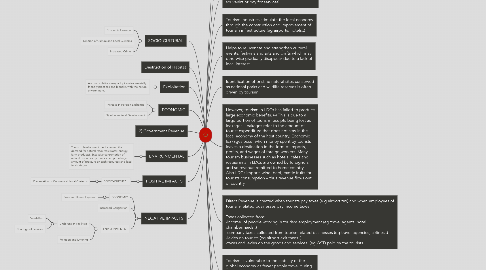O
создатель Nurhayati Rahman


1. SOCIO-CULTURAL
1.1. Economic Leakage
1.2. Dilution of Culture and Local Customs
1.3. Increased Crime
2. Destruction of Habitat
3. The tourism industry can heighten environmental awareness among tourists and locals. Tourism can contribute to the conservation of unique areas and habitats (eg by paying admission fees into national parks).
4. Exploitation
4.1. Accommodations may adopt environmentally friendly practices and blend in with the natural environment.
5. ECONOMIC
5.1. Increase in Foreign Exchange
5.2. 3) Infrastructural Development
6. Provision of tourist infrastructure may require the clearing of large areas of forested land (eg clearance of large areas of rainforests in Genting Highlands to build resorts, hotels, theme parks).
6.1. Seasonal fluctuations - heavy rains during monsoon months result if fewer tourists in Malaysia during Nov – Feb; - summer months may result in drop in tourists in many ski resorts in Hokkaido and Europe – thus seasonal unemployment occurs
6.1.1. Without proper management and control, such large scale deforestation can have devastating effects on the natural environment (destruction of habitats, soil erosion, landslides, water pollution..).
6.1.2. Increased Carbon Footprint
6.1.2.1. Excessive and Wasteful Consumption
7. Indirect Revenue is created when tourists spend on goods and services (accommodation, food, souvenirs or pay for services)
8. 2) Government Revenue
9. Tourism industries stimulate the local economy through the construction and improvement of tourism infrastructure (eg airports, hotels..)
10. Helps to rejuvenate and strengthen cultural events, festivals and arts and crafts which may otherwise gradually disappear due to a lack of local interest.
11. ENVIRONMENTAL
11.1. Tourism development has increased the demand for natural resources (water, energy, farm products). Excessive consumption of natural resources by tourists can put a huge amount of pressure on such resources and lead to shortages.
12. Identification of pristine natural sites conserved as national parks and wildlife reserves is often driven by tourism.
13. POSITIVE IMPACTS
13.1. SOCIO-CULTURAL
13.1.1. Preservation of Culture and Local Customs
14. NEGATIVE IMPACTS
14.1. ECONOMIC
14.1.1. Seasonal Unemployment
14.2. Increased Congestion
14.3. ENVIRONMENTAL
14.3.1. Underuse of Facilities
14.3.1.1. Vandalism
14.3.1.2. Shortage of Services
14.3.2. Pollution and Littering
